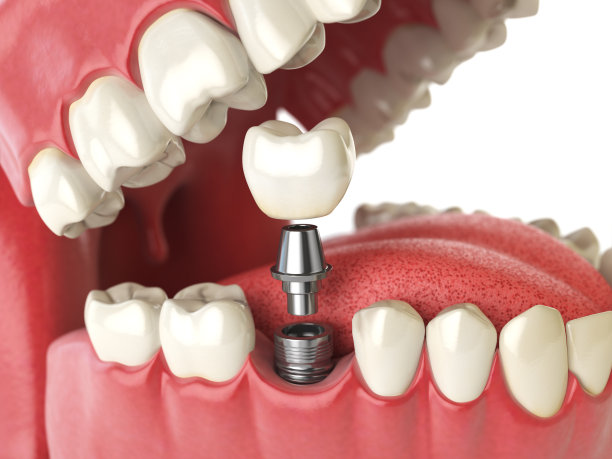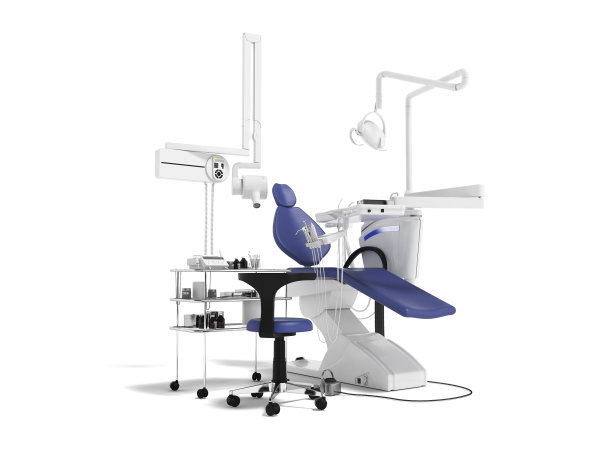Summary: This article delves into the multifaceted relationship between periodontal disease and overall health, emphasizing its potential systemic implications and presenting effective preventive strategies for maintaining oral hygiene. It begins by defining periodontal disease and outlining its symptoms, followed by a discussion on how this condition can exacerbate other health issues such as heart disease, diabetes, and respiratory problems. The article then offers practical preventive measures, including proper oral hygiene, dietary considerations, and regular dental visits, for achieving a healthier smile. Moreover, it highlights the importance of early detection and intervention in managing periodontal disease. In conclusion, understanding the impact of periodontal disease on overall health is crucial for developing effective preventive strategies and fostering better long-term health outcomes.
1. Understanding Periodontal Disease and Its Symptoms

Periodontal disease, commonly known as gum disease, begins with inflammation of the gums, often due to plaque buildup from inadequate oral hygiene. If not treated, it can progress to more severe conditions affecting the bone that supports the teeth. Early signs of periodontal disease include swollen gums, bleeding during brushing, and bad breath. Individuals may underestimate these symptoms, but they are critical indicators of underlying problems.
As the disease progresses, individuals may experience gum recession, changes in tooth position, or even loss of teeth. Furthermore, chronic periodontal disease can cause a host of uncomfortable symptoms and complications, making it essential to recognize these warning signs early. The lack of awareness surrounding these symptoms often leads to delayed treatment and higher risks for systemic health issues.
Understanding these symptoms is a vital first step in recognizing gum disease. Awareness can lead to earlier interventions, which are key to maintaining not only oral health but overall health as well. Individuals experiencing any signs should seek dental advice to address these issues before they escalate.
2. The Link Between Periodontal Disease and Systemic Health
Recent research suggests a strong link between periodontal disease and various systemic health conditions. One significant connection is with cardiovascular disease; inflammation from gum disease may exacerbate risk factors associated with heart disease, such as blood pressure and cholesterol levels. The bacteria present in oral infections can enter the bloodstream, contributing to the inflammation that leads to arterial damage.
Additionally, uncontrolled diabetes can pose a two-way challenge, as poor oral health can make it harder to regulate blood sugar levels, establishing a negative feedback loop. Individuals suffering from diabetes are more susceptible to periodontal disease, which in turn adversely affects their diabetes management. This chronically inflammatory situation demands a more integrated approach to healthcare.
Respiratory diseases are another area of concern, as bacteria from the mouth can be aspirated into the lungs, leading to respiratory infections or exacerbating existing conditions. This connection further emphasizes the importance of maintaining good oral health, as periodontal disease can significantly impact the respiratory system, especially in vulnerable populations.
3. Preventive Strategies for Maintaining Oral Health
Preventive measures are crucial for averting periodontal disease and maintaining overall oral health. Regular dental check-ups at least twice a year can help identify potential problems before they escalate. Dentists are equipped to perform professional cleanings that remove plaque and tartar buildup, essential for preventing gum disease. Routine exams also allow for early detection of any gum anomalies.
Incorporating good oral hygiene practices at home is equally important. Brushing teeth at least twice a day, using fluoride toothpaste, and flossing daily can significantly reduce the risk of periodontal disease. It is advisable to replace toothbrushes every three months or sooner if the bristles are frayed, ensuring effective plaque removal.
A proper diet also plays a role in preventing gum disease. Consuming a balanced diet rich in vitamins, particularly vitamin C, can bolster gum health. Limiting sugary snacks and drinks can reduce plaque formation, further protecting against periodontal issues. Staying hydrated is also essential; drinking water helps wash away food particles and bacteria, contributing to oral wellness.
4. The Importance of Early Detection and Intervention
Early detection and intervention are critical components in managing periodontal disease effectively. Regular dental visits enable dental professionals to assess gum health and address any issues promptly. Detecting periodontal disease in its early stages significantly increases the chances of successful treatment and recovery.
If someone is diagnosed with periodontal disease, various treatment options are available, ranging from more intensive cleaning techniques to advanced surgical interventions. The tailored approach depends on the diseases progression, but proactive management can halt or reverse its effects, thus preserving oral and overall health.
Moreover, patient education on the importance of adhering to prescribed treatments cannot be overstated. Following a dental care routine and understanding the implications of periodontal disease on overall health can empower individuals to take charge of their oral hygiene and systematically improve their well-being.
Summary: Throughout this article, we explored the significant impact of periodontal disease on overall health, emphasizing its links to systemic conditions and the critical importance of early intervention. We also discussed practical preventive strategies that promote not just oral health but overall well-being, underscoring how maintaining healthy gums can influence broader health outcomes. Understanding the stakes can motivate individuals to prioritize their dental health, fostering more informed choices and healthier lives.
This article is compiled by Vickong Dental and the content is for reference only.
Vickong Dental
Vickong Dental is a large medical group established in Hong Kong in 2008 by professors from well-known medical universities in Guangdong and Hong Kong, as well as medical doctors from key national '985' universities (including Master's supervisors and senior professors). The chain of branches brings together expert dentists with PhDs and Master's degrees from Hong Kong and Mainland China, committed to providing high-quality dental treatment.
"Vickong Dental Practices the University Motto of 'Healing and Serving Society,' with a Stable Operation for Sixteen Years. It Has Been honored with Hong Kong Enterprise Leaders's Choice,' and is a Global Trusted Implant Center for the Nobel Implant System. Recommended by Hong Kong Metro Broadcast and Guangdong Television, it Serves Customers from Over Thirty Countries and Regions, Gaining the Trust and Favor of Citizens from the Guangdong-Hong Kong-Macau Greater Bay Area and Surrounding Cities.

Thousands of customers' unanimous praise
The most recognized and highly recommended dental service by customers in the Guangdong-Hong Kong-Macau Greater Bay Area
We Ensure You Receive Detailed Care and Attention Here
Hong Kong standards, Shenzhen prices, Your Trusted English-speaking dentists

Vickong Dental Medical-Grade Instrument Disinfection Process
Vickong Dental Medical-Grade Instrument Disinfection Process

Vickong Dental Chain: A Warm and Comfortable Environment for Treatment






Appointment Hours

Q&A
Why choose Vickong Dental?
Vickong Dental practices the university motto 「Medicine to Benefit Society」, with each branch bringing together highly qualified dentists with doctoral and master’s degrees from Hong Kong and the Mainland, and has maintained seventeen years of steady operation。Recipient of 「2024 Hong Kong Enterprise Leaders Brand」, 「2025 Hong Kong Enterprise Leaders Brand」, a Nobel Biocare Global Trusted Implant Center, and a brand recommended by Metro Radio Hong Kong and Guangdong TV。
To date, we have served customers from more than thirty countries and regions,earning exceptionally high word-of-mouth recognition and trusted recommendations from residents across the Guangdong-Hong Kong-Macao Greater Bay Area and surrounding cities
We have eight major branches in Zhuhai、Shenzhen,and a consultation and service assurance center in Hong Kong,so you can book a free consultation at any time for any questions,which is very reassuring.
If I do not accept the quotation after the CT scan, will I be charged??
No! As long as the actual treatment has not started, you will not be charged any fees.
Will there be any additional charges during the treatment process?
No, there won’t be any additional charges. Before treatment begins, we will clearly explain the treatment plan and its corresponding fees. Only after the patient agrees and signs the consent form will we proceed with the dental service.
Can I pay in Hong Kong dollars?
Yes. Vickong Dental accepts payment in Hong Kong dollars. The amount will be converted based on the exchange rate of the day, and the applicable rate will be clearly communicated to you in advance.
Can I reschedule my appointment at any time?
Yes. Please contact us via **WeChat** or **WhatsApp** as early as possible, providing your original appointment time and details, along with your preferred new date and time slot for rescheduling.













